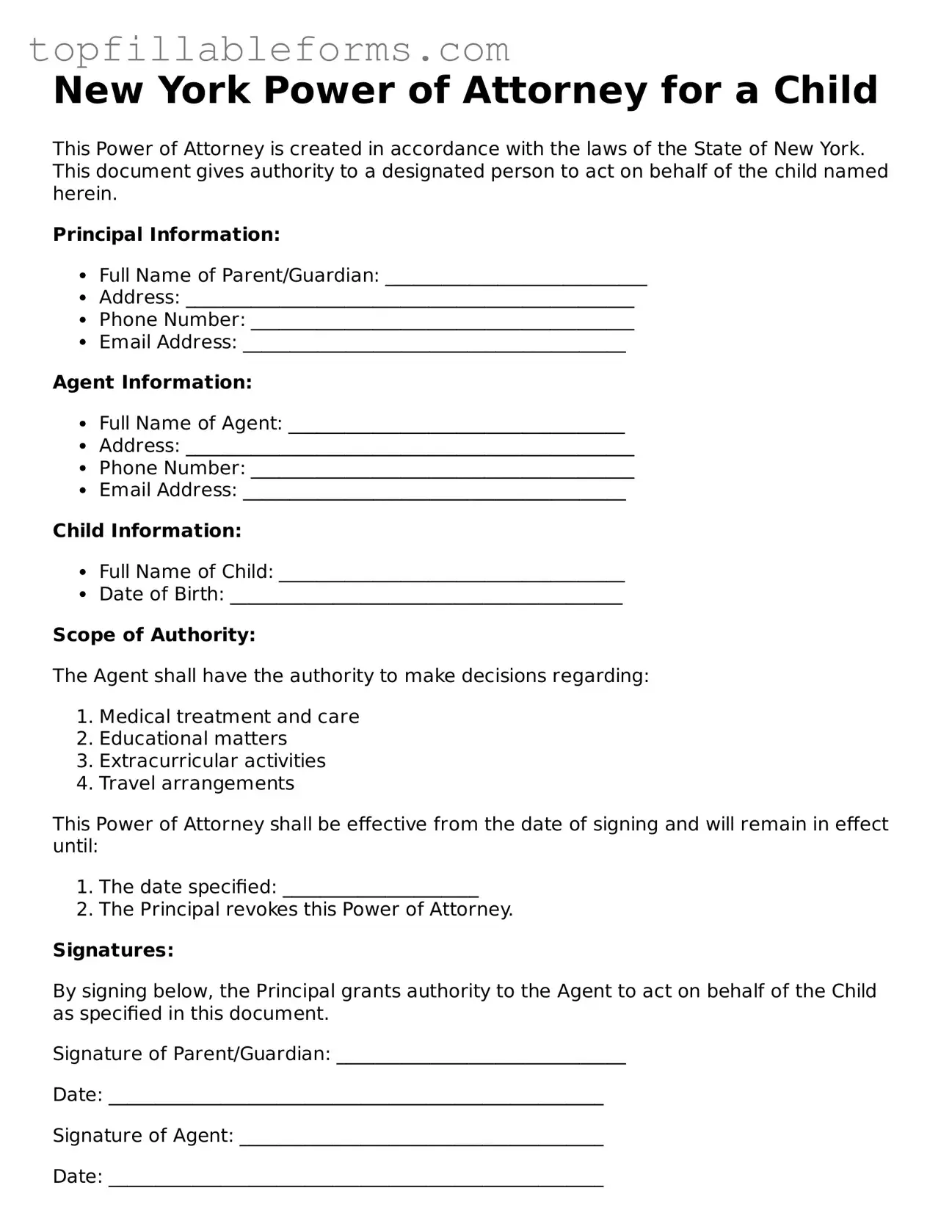Attorney-Verified Power of Attorney for a Child Template for New York
The New York Power of Attorney for a Child form is a legal document that allows a parent or guardian to designate another adult to make decisions on behalf of their child. This form can be essential for situations like travel, medical care, or educational needs when the parent is unavailable. By using this form, parents can ensure that their child receives the necessary support and care in their absence.
Open Power of Attorney for a Child Editor Here

Attorney-Verified Power of Attorney for a Child Template for New York
Open Power of Attorney for a Child Editor Here
Finish the form now and be done
Finish your Power of Attorney for a Child online by editing, saving, and downloading fast.
Open Power of Attorney for a Child Editor Here
or
▼ PDF File
